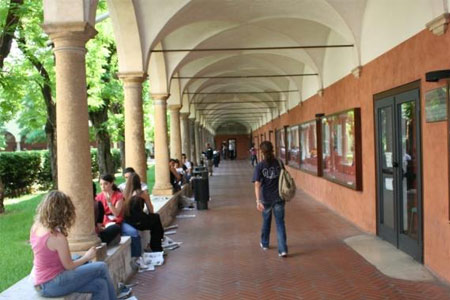- Didattica

Corsi di laurea
Corsi di laurea magistrale
POST LAUREA
- Facoltà
- Segreterie e sedi

Segreterie
Strutture
- Persone
- MY UNIVR
-
The course aims to provide knowledge on: - hallmarks of cancer; - metabolic characteristics of tumor cells; - biological and biochemical characteristics of tumor stem cells; - oncometabolites; - metabolic enzymes: other functions to support tumor proliferation; - cutting-edge technologies used in research to study the biochemistry of tumors; - new potential biochemical markers for the diagnosis of neoplasia; - female tumors and male tumors; - infections leading to the onset of neoplasms; - variants of the LHCGR receptor and its potential role in the development of male tumors; - connection between neoplasm and fertile potential in males. At the end of the course, the students will individually or in groups explain a topic of their choice present in the literature or based on their specialization experience, referring to the topics covered in class with the aim of showing a critical and applicative vision of the biochemistry of tumors.
During the course the following topics will be covered: the definition of cancer hallmarks according to Douglas Hanahan and Robert Weinberg; the metabolic characteristics of tumor cells, with particular reference to the Warburg effect and its interpretation today based on the most recent scientific works published in the literature; from the first discoveries to the latest scientific evidence on cancer stem cells; the metabolic characteristics of tumor stem cells; definition of oncometabolites and their role in supporting tumor proliferation and metastasis; the various functions of the most well-known metabolic enzymes in cancer; exhibition of the technologies used in research to study the biochemistry of tumors; new potential biochemical markers for the diagnosis of neoplasia; classification of the most common female and male tumors; cause-effect of some types of infections in the onset of certain neoplasms; role of hormones in tumorigenesis and variants of the luteinizing hormone receptor (LHCGR) in the development of male tumors; influence of the development of tumors on the alteration of fertile potential in males.
At the end of the course, the students will individually or in groups explain a topic of their choice present in the literature or based on their specialization experience, referring to the topics covered in class with the aim of showing a critical and applicative vision of the biochemistry of tumors.
© 2002 - 2024
Verona University
Via dell'Artigliere 8, 37129 Verona |
P. I.V.A. 01541040232 |
C. FISCALE 93009870234